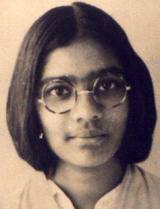

| English poems by ... | |
|
| ||
| Father, Late Juma Premji Rupani At age 14 years, Late Juma Premji Rupani, with one-and-a-half-year basic education of Gujarati language, left Kodinar (India) in 1895, to sail to Mozambique (then Portuguese East Africa), landing at the port of Inhambane. The voyage across Indian Ocean took a month-and-half to complete. An ardent believer of the importance of education for his children, twenty-eight years later, in 1923, Late Juma Premji Rupani (by then a wealthy merchant who had invested heavily in sugarcane plantations in anticipation of reaping benefits from sugar factories that Portuguese colonial government of the time had intended to set up in Mozambique) undertook a return voyage of 21 days (by ship) to India with his children, among them Mr. Mohamed Rupani (aged 11 years), and children (some orphans) from other families. The objective of the journey was to avail the children the opportunity to receive good education. By 'a stroke of the pen' - so to speak - Late Juma Premji Rupani lost all his sugarcane investment and other wealth when the colonial government changed its mind and cancelled the sugar factory projects; the persons he assigned responsibility to run his affairs, while he was away in India, just did not know how to handle the critical situation and he could not get back to Mozambique in time to take control (there were no commercial airlines at that time). The changed economic situation brought about imense hardship to the family. Author of Gujarati books | ||
| Mr.
& Mrs. Mohamed Rupani Mr. Mohamed Rupani and Miss Dilawer K. Kavi (maiden name) met at Baroda College. They were married in 1940. Mr. & Mrs. Rupani taught at high-schools in Zanzibar & Dodoma (Tanzania) and in Mombasa (Kenya), owned Tononoka Stores (grocery and 'convenience' business) and National Commecial College in Mombasa. The couple earned the reputation of being ahead of their time, at least among their students and the students' parents, for encouraging racial harmony, at a time when East Africa was experiencing the infamous apartheid type of culture in 1940's, created by the colonial powers of the time. Mr. and Mrs. Rupani have three sons, seven grandchildren (including two adopted grandchildren) and three great-grandchildren | ||
| Miss
Dilaver K. Kavi Born on January 19, 1918 in a suburb of Ahmedabad, Gujarat, (India), Miss Kavi was the first Muslim girl to join Baroda College (1936) where she met Mohamed Rupani and they married in 1940. That year Mr. & Mrs. Rupani went to East Africa, where they taught at high-schools in Zanzibar (1940-1941), Dodoma (1942-1949) and Mombasa (1949-1968). In 1950's Mrs. Rupani was an active social worker setting up and participating in challenging programmes on behalf of Municipal Council of Mombasa. With personal resources, Mr. and Mrs. Rupani provided material support for day-to-day needs and education of two children from financially under-previledged families of African origin. After teaching morning sessions at their respective schools, Agakhan Girls School and Alidina Visram High School, Mr. & Mrs. Rupani operated a family-owned grocery and 'convenience' store, Tononoka Stores. | ||

(19 Jan. 1918 - 14 Dec. 2006) |
||
